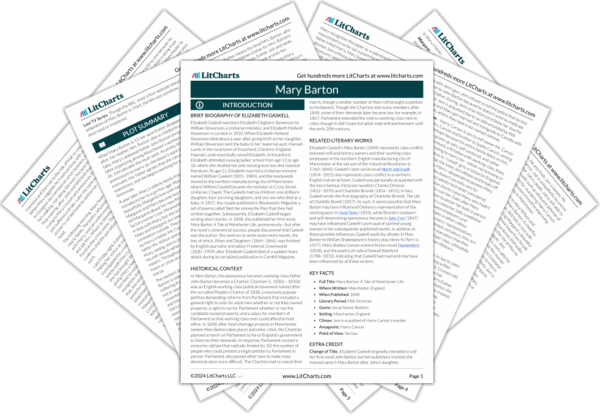Esther’s decision not to contact her family, despite her desperate straits, reveals that she sees herself as rightfully ostracized for her premarital sexual activity and for her sex work. Nevertheless, she still wants to help her remaining family, showing her community-oriented moral sense. Jem’s alarming claim that they’re “all” better off dead if Mary is ruined, meanwhile, shows the vehemence of romantic and sexual feelings in the novel—and thus of their potential dangerousness.
